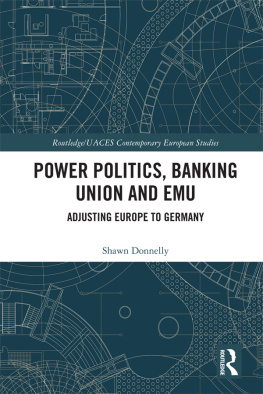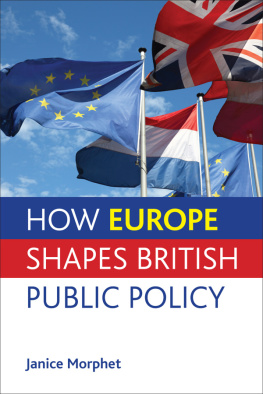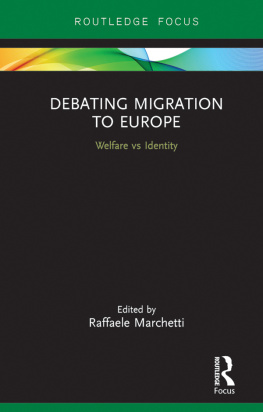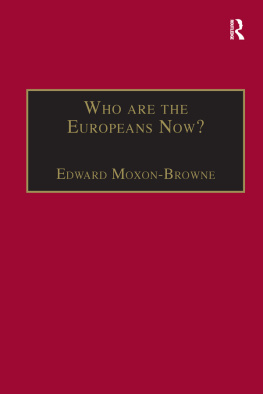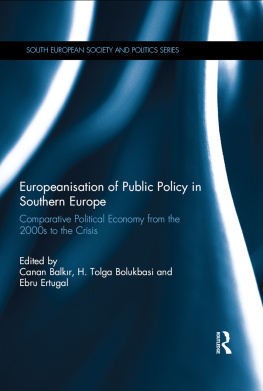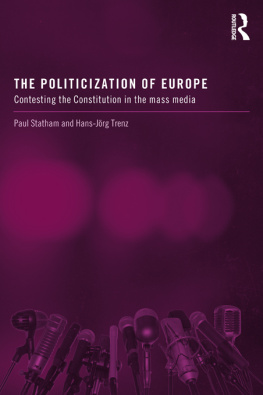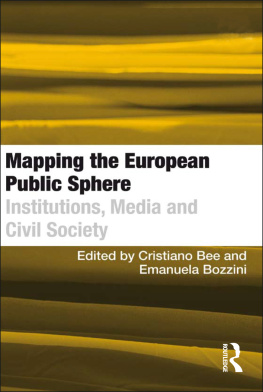Ambivalent Europeans
Ambivalent Europeans examines the implications of living on the fringes of Europe. In Malta, public debate is dominated by the question of Europe, both at a policy levelwhether or not to join the EUand at the level of national identitywhether or not Maltese are European.
Jon Mitchell identifies a profound ambivalence towards Europe, and also more broadly to the key processes of modernisation. He traces this tendency through a number of key areas of social life gender, the family, community, politics, religion and ritual.
This book examines the potency of ritual with special reference to the island's festi (feasts), in particular that of the national patron St Paul, showing how they are used as a means for resolving and expressing anxieties about tradition and modernity. It also looks at the pervasive nostalgia that characterises contemporary Malta, a country where Roman Catholicism has historically been dominant, and where modernisation and Europeanisation are seen to threaten values, even when they promise greater affluence and economic stability. In addition, it demonstrates how the particular dynamics of Maltese public life have shaped debates concerning national identity.
This book contributes to contemporary theoretical debates, and highlights processes that may be observed outside of Malta as well. In so doing, it furthers our understanding of European integration, not least how Europe is viewed from its margins.
Jon P. Mitchell is a lecturer in Social Anthropology at the School of,! Cultural and Community Studies, University of Sussex, Brighton, UK
First published 2002
by Routledge
2 Park Square, Milton Park, Abingdon, Oxon, OX14 4RN
Simultaneously published in the USA and Canada
by Routledge
270 Madison Ave, New York NY 10016
Routledge is an imprint of the Taylor & Francis Group
Transferred to Digital Printing 2009
2002 Taylor & Francis
Typeset by Expo, Malaysia
All rights reserved. No part of this book may be reprinted or reproduced or utilised in any form or by any electronic, mechanical, or other means, now known or hereafter invented, including photocopying and recording, or in any information storage or retrieval system, without permission in writing from the publishers.
British Library Cataloguing in Publication Data
A catalogue record for this book is available from the British Library
Library of Congress Cataloging in Publication Data
A catalogue record has been requested
ISBN 0415271525 (hbk)
ISBN 0415271533 (pbk)
Publisher's Note
The publisher has gone to great lengths to ensure the quality of this reprint but points out that some imperfections in the original may be apparent.
Preface
It is astonishing that a project that has taken as long to come to fruition as this one looks anything like the one I imagined at the outset. In 1992 I set out to research issues of Maltese national identity at a time when European integration was being discussed across the continent - the Maastricht summit giving impetus to pro- and anti-European agendas in both the countries that were already EU members and those that were on the fringes. These are the results.
In many ways, the theme of this book - ambivalence - was prefigured in the work of Thomas Pynchon. V was the first book I read during fieldwork. Its narratives follow the pursuit of the elusive V. from New York to Cairo to Alexandria to Malta by spies, sailors, priests and others. The search is as protracted as my own was for an understanding of my informants orientation to the world. Like identity itself, V. turned out to be everything and nothing:
Truthfully, he didn't know what sex V. might be, nor even what genus and species ... If she was a historical fact then she continued active today and at the moment, because the ultimate Plot Which Has No Name was as yet unrealized, though V. might be no more a she than a sailing vessel or a nation. (Pynchon 1956: 226)
The chapter epigrams are taken from the Maltese sections of V, much of which take place during and immediately after the second world war - a time of crisis, when many of the institutions discussed in this book were questioned. It appeared to me that a similar questioning was taking place during the time of my fieldwork, and it is for this reason that I use these epigrams. They stand as a literary device to signal the relationship between outsiders representation of Maltese ambivalenceboth Pynchon's and my ownand those I examined as those of my informants. In many ways, the passages of V present an Orientalistor Mediterraneanist (see Herzfeld 1987, below)commentary on Maltese culture and society. But such Mediterraneanism is not the the preserve of the outsider. It is an image that is also prominent in indigenous representations of Malta one which shapes an ambivalent self-identity that is simultaneously self-aggrandising and self-deprecatory. Indeed, as the Maltese philosopher Peter Serracino-Inglott has argued, V sums up this self-seduction and self-loathing, personifying its ambivalence in the character of V.a transvestite, and part machine, with one eye replaced by a watch-face. Serracino-Inglott argues it is an appropriate image for Malta:
The Maltese have shown a preference for, and excellence in, work as catalysts, brokers, middlemen, entrept traders, interpreters, translators, even as what one might call cultural transvestites ... (Serracino-Inglott 1988: 370)
In writing this book, I have tried to explore the implications of this ambivalence, tracing core anxieties about the process of European accession, of modernisation and progress. I have tried to represent these anxieties as fully as possible, as they emerged during almost two years of fieldwork. Each chapter explores them in relation to a particular area of Maltese social life, and the chapters therefore deal with different ethnographic and theoretical material. They are intended to be semi-autonomous piecesarticulated parts of an ethnographic whole. The book combines ethnographic vignettes some of which are explicitly reflexivewith more distanced analytical and theoretical analysis. As with the use of the Pynchon epigrams, this is intended to draw attention to the peculiar position of an ethnographer as both participant and observerinsider and outsider. Although I employ indigenous voices throughout the book, any misrepresentations are entirely my fault. All names contained herein, except those of prominent public figures, have been changed to preserve anonymity. Place names and street names remain accurate.
Most of my fieldwork was conducted in the Maltese language Maltiand quotes from my interviews appear here as my translations. Similarly, quotes from Maltese language sources. All indigenous terms are italicised, including loan words from the English, for example hobby, training and bastard, which are indigenised versions of their English counterparts.
Inevitably in a project of this duration, I have many people to thank. The initial research was funded by ESRC. I am grateful to them and to the University of Edinburgh, University College London and the University of Sussex for providing resources to bring the project to fruition. In Malta, Jeremy and Inga Boissevain, Isabelle Borg, Paul Clough, Paul Sant Cassia, James and Pia Sapienza, Joe Vella, Raphael Vella and Ruth Azzopardi all helped to keep me sane. Lawrence and Miriam Carabott, Guzi and Polly Cremona, Simon Cumbo, Vince Farrugia, Charlie Grima, Guzi, Salvina, Paul Mario and John Sciberras, Freddie Sciberras, Joe and Carmen Verzin were patient in the extreme. The Chapter of St Paul's Shipwreck Church,


